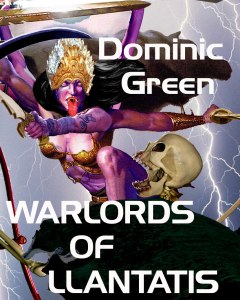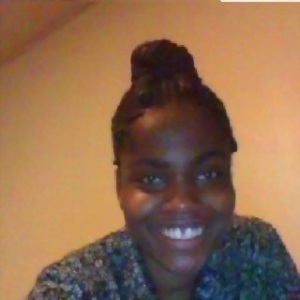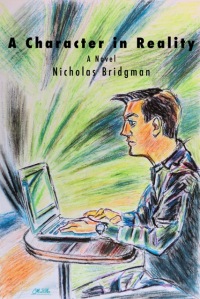Today we have Jeff Monaghan on the blog sharing the experience he gained writing his first novel. There are some gems here for writers, so pay close attention! Take it away, Jeff…
I wrote a novel; a thriller to be exact. Six years ago I heard a segment on the radio during my drive to work that I thought would make for a great thriller. My first thought was that I needed to find someone who could write it. But by the time I got to work, I had decided that the best person to write it was me. It’s one of those things that, at the time, I thought was probably impossible but wanted to see if I could actually do it if I set my mind to it. It’s six years later, my novel is finished, and here is what I have learned.
1. Writing a novel is NOT something other people do
When I started to consider writing a novel, I thought it was something other people did. I’m not an author. Other people are authors. Men who wear tweed jackets, smoke pipes, and wear glasses at the end of their noses are authors. And single women who sit in their New York apartments and drink wine are authors. But not me. I’m not an author.
But it was finding an amazing local author/teacher named Ellen Sussman that helped me realize I could write a novel. It was fellow authors like Heather Haven and Baird Nuckolls, whom I met in Ellen’s workshops, that pointed out the weaknesses in my novel and gave me a path forward to make it better. We all have great ideas for stories. People who write novels have simply taken the time to learn how to put their ideas down on paper in a way that entertains others. Well, that is the hope anyways.
2. Not knowing something is not an excuse
Not knowing about a particular subject may have limited writers in the past, but the Internet has changed that. You can find almost anything online.
There are two characters in my novel who are very different and I needed a way for them to connect on a level that others might not understand. I decided to make them both players of Minecraft, a massively popular online “virtual world” game. The problem was that I knew very little about the game. Luckily, after five minutes of Googling, I found an online Minecraft community that knew everything there was to know about Minecraft. I posted the two excerpts from my novel that discussed the game and many of the members gave me feedback on how to make the writing more accurate. Thank you Minecraft.net
3. Writing a first novel is hard and it takes a long time to get it right
Persistence is a must. That’s not to say there aren’t individuals out there who can easily crank out a great novel in three months. But for a first novel, you’re more likely looking at years to get it right. It’s more than just the act of writing, it’s learning how to write, and that takes time. Ira Glass says it best in this video about creating a story. I refer to this video a lot:
Ira Glass on Storytelling
4. Keep moving forward
The only way to write a novel is to write. And keep writing. I had to learn that my writing wasn’t always going to be good but that it was important to get the ideas down on paper first so that I had a foundation on which to build even better ideas. Once I realized that writing crap was part of the process, it helped me to move forward. I can write crap all day long. The lesson? Keep writing, even if it’s crap. You’ll edit, make it better, and keep moving forward. You will get there eventually. Maybe. Hopefully.
5. My novel followed me, everywhere
One thing I did not expect was that my novel followed me everywhere I went. It was like some sort of subliminal manic movie projector that showed random scenes at any given time. These scenes were often triggered by everyday life, but sometimes not. They popped up at random times and often seemed like pure genius. Other times, after some thought, they were just plain dumb. But they were ideas that needed to be documented so they could lead to something better. So even when I wasn’t consciously thinking about my novel, I know it was there, lurking, stewing and continuing to form.
6. Writing is not always writing
Writing is not always putting words on paper. It’s sometimes simply letting your story play itself out in your head and taking note of what is happening. Sometimes when I did this, nothing really happened. My characters didn’t do much. Other times, I found myself on the side of the road dictating into the recording device on my phone. Writing is not always writing.
7. Enjoy alone time
The act of writing is an alone time activity. If you don’t like spending time by yourself, you will have trouble writing anything.
8. You need people who are honest
Honest feedback is another key to writing a successful novel. If, or should I say when, your writing isn’t good, someone needs to tell you. And then it’s your job to fix it and make it something people will want to read. Which brings me to my next lesson.
9. Give people what they want
If you want people to read your book, you need to give them what they want. That includes likeable characters (when’s the last time you read a book that had a main character that you hated?), a story that has an arch to it (it must go somewhere, the character(s) must evolve), and you’ve got to hook them in the beginning and don’t let go.
The first draft of my novel went down a rather depressing road with a weak leading character. I’ll never forget the response I got from my good friend Heather Haven. “Please! Give me something to like about this guy.” Stuff like that is painful to hear but it’s a necessary part of writing.
10. A “dead-end” will work itself out, eventually
When writing my novel, especially since it was my first, I quickly learned that writing myself into a corner was common. There is a scene in my novel where Jack (the good guy) is being chased by the bad guy and ends up hiding in a women’s dressing room at a clothing store in the mall. My initial thought was that I could simply have him escape out a back door. The problem, which I realized after I wrote the scene, was that dressing rooms don’t have back doors for obvious reasons, theft. So after having written the scene, I was stuck with my main character trapped in a dressing room with no way out. Basically, he was screwed. I was stuck on this scene for a week before I finally came up with a way to resolve the issue. Sometimes it takes time, but if you keep at it, “dead-ends” will work themselves out.
11. Ask for criticism
I wanted people to love what I wrote. But I soon learned that wasn’t always going to be the case, which is exactly what every writer needs. The last thing I wanted to be is that contestant on American Idol who was told they were a great singer their entire life and then, when it really counts, in front of the people who matter, completely bomb. The criticism I received early on proved invaluable for my writing. I soon began asking for criticism when I realized the positive effect it had on what I was producing.
12. Find time
One of the biggest challenges any first time author will encounter is finding time to write. My wife, kids, job, house, family, and hobbies all require time and attention leaving little time for writing. But like anything else in life, if you make it a priority, time can be found.
13. Your characters need motivation
There needs to be a driving force behind why your characters do what they do. Walter White was a run-of-the-mill, straight-laced, chemistry teacher. He wasn’t going to decide to cook meth just because it sounded interesting. Something drastic had to push him into it to make the story believable and compelling. The more radical the action a character takes, the more important a believable motivation becomes.
14. For the people who are interested, share as much as you can with them
There were a select few people who got really excited when they learned I was writing a thriller and wanted to hear all about it and the process I used. These people were rare and I leaned on them for as much information as possible. They wanted to be part of the process and they had connections, life experiences, and ideas that I didn’t.
For example, the first thing I ever wrote and published was a short memoir about my father. I also made a trailer for the book using old home movies. You can see it here. After I completed it I provided a link to the video on my LinkedIn profile which led to a completely unexpected conversation.
I was at work speaking with a representative from LinkedIn about something related to my day job and at the end she mentioned the trailer. She had seen what I posted on my profile and was curious about the memoir I had written, wondering how I had done it. After a few minutes I mentioned the thriller I was currently writing and she was able to provide some insight that I would never have known had I not spoken with her. Insight that contributed significantly to the accuracy of my novel.
15. The first draft of my novel wasn’t good, and that’s normal
The first draft of my novel needed work and I was lucky enough to know people who told me so. But I also knew there was something good there to uncover.
16. The second draft for my novel wasn’t good either, and that’s normal too
My second attempt was a little better, but it still wasn’t very good.
17. My third attempt got me pointed in the right direction
Thanks to some constructive criticism, I finally found the kernel of goodness that was hiding in that first draft and my novel and my story was starting to look like something that might be really good. But the third draft still needed a lot of work.
18. The longer you work on your novel, the harder it is to know what works
The deeper I got into my novel, the more difficult it was for me to realize what was working and what wasn’t. This is where I had to rely on others that I trusted to provide me with some clarity. I often found myself writing “where the novel took me” only to later realize that what I was writing wasn’t very exciting. It was a thriller. It needed to be exciting and I needed to do some planning and thinking about the direction of the story before I wrote.
19. When you think it’s finished, you’re probably six months to a year away
The novel I ended up with is light years away from the one I originally conceived. Not that I had to abandon my original idea, but it didn’t take long to learn that the original idea I had simply wasn’t enough for a full blown, engaging thriller. I needed to add more layers to my story. Make it more complex. This is what that additional year of writing did for my novel.
20. Ultimately, it was my novel
People gave me a lot of advice along the way, and they still do. The challenge, as I have learned, is to know when to heed that advice and when the advice didn’t apply to what I was writing. It’s much easier said than done. Ultimately, though, I came to realize that it was my novel with my name on it. I had to make the decisions that I felt would lead to the best story I could possibly write.
21. It’s shocking how many grammatical errors I made
I hate reading something that has grammatical errors. I pride myself as someone who has a decent grasp of the English language and rarely makes spelling or grammar mistakes. But let me tell you, when you write 80,000 words you make a lot of errors. In fact, an embarrassing number of errors. Spell check and proofread yourself – again and again, but also get several other people to do so as well. As many as you can. You may even want to pay a professional. You’ll never find all of your own mistakes.
22. Use real life whenever possible
My novel has a scene in a hospital. I wrote it the best I could based on the memories I had accumulated over the years of being in, and visiting people in, a hospital. My intent was to go back and visit a hospital at some point to experience the smells, sounds, and sights myself and then rewrite the scene to make it more accurate. Lucky for my novel, and bad for me, I ended up breaking three ribs at one point and ended up in the hospital for an overnight stay. My ribs are now better and so is the hospital scene.
23. Google image search can be a great tool
One of the most dramatic scenes in my thriller takes place in an alley in Boston. I don’t live in Boston. In fact, I don’t even live remotely close to Boston. And to make matters worse, I don’t think I’ve walked down an alley before. At least not that I care to remember. But a simple Google image search brought up numerous pictures of alleys. I found the perfect one and used it for inspiration.
24. So can Google street view
Again, the fact that much of my novel was based in Boston proved challenging at times. But Google was always there to help. In one particular situation I needed to know the location of a 7-11 in Boston. I was able to use Google Maps to find a street with a 7-11 on it and then used street view to search the surrounding street names, buildings, landmarks, etc. Successful authors can travel to the locations they are writing about but us first-time authors need to be a little more resourceful.
25. YouTube
Ever wondered what it’s like to administer CPR to a man suffering a heart attack? YouTube can show you. The Internet can be an endless resource for budding and experienced authors.
Jeffrey Monaghan is a Silicon Valley executive with an unhealthy obsession for technology. He grew up in Southern California but currently resides in Portland, OR with his wife and two kids. His debut thriller, Cardiac, is available on Amazon.

Cardiac: A Jack Getty Thriller
Follow me on Facebook


 I’m going to pretend now that you asked me What Gives Me Inspiration To Write. Well, that’s a very interesting question. This particular novel contains elements of cyberpunk, elements of object-oriented programming, and huge unashamed chunks of Dungeons and Dragons and World of Warcraft, seasoned with cartoon violence and genuine real-life weirdness perpetrated on me by friends and enemies in the roleplaying hobby. If you feel any of the characters in this book are too weird for real life, just log on to a MMORPG server some time. I once walked into a bar in Stormwind and was greeted by a dwarf (a player character) dressed as a maitre D. He greeted me, showed me to my table, asked me if I’d like to see the menu, served me a very nice virtual meal, stood dutifully by the table while I ate and drank, and then bade me a good day. I have absolutely no doubt that he did this to everyone who ever walked into the bar. Some people want to vanquish dragons. Others just want to serve you a glass of Dalaran Noir.
I’m going to pretend now that you asked me What Gives Me Inspiration To Write. Well, that’s a very interesting question. This particular novel contains elements of cyberpunk, elements of object-oriented programming, and huge unashamed chunks of Dungeons and Dragons and World of Warcraft, seasoned with cartoon violence and genuine real-life weirdness perpetrated on me by friends and enemies in the roleplaying hobby. If you feel any of the characters in this book are too weird for real life, just log on to a MMORPG server some time. I once walked into a bar in Stormwind and was greeted by a dwarf (a player character) dressed as a maitre D. He greeted me, showed me to my table, asked me if I’d like to see the menu, served me a very nice virtual meal, stood dutifully by the table while I ate and drank, and then bade me a good day. I have absolutely no doubt that he did this to everyone who ever walked into the bar. Some people want to vanquish dragons. Others just want to serve you a glass of Dalaran Noir. Ian Lahey teaches English Language and Literature in Italy. An incessant traveler, he has visited the country from coast to coast (which doesn’t take much), and from head to toe (which is somewhat longer).
Ian Lahey teaches English Language and Literature in Italy. An incessant traveler, he has visited the country from coast to coast (which doesn’t take much), and from head to toe (which is somewhat longer). Ashleigh Bonner can be found on Twitter at
Ashleigh Bonner can be found on Twitter at 

 Ronelle Antoinette was born in Phoenix, AZ and raised in beautiful Colorado. She currently lives in Grand Junction with her husband, two sneaky cats, and one dog-who-believes-he’s-a-person. While she’s a mother to none, she’s an auntie to a small army…the newest recruit joined them in April 2016. Ronelle dabbled in creative writing for many years and even considered it as her major in college. (She ended up getting a Bachelor’s degree in Counseling Psychology.) She published her first novel, Errant Spark, in July of 2016.
Ronelle Antoinette was born in Phoenix, AZ and raised in beautiful Colorado. She currently lives in Grand Junction with her husband, two sneaky cats, and one dog-who-believes-he’s-a-person. While she’s a mother to none, she’s an auntie to a small army…the newest recruit joined them in April 2016. Ronelle dabbled in creative writing for many years and even considered it as her major in college. (She ended up getting a Bachelor’s degree in Counseling Psychology.) She published her first novel, Errant Spark, in July of 2016.
You must be logged in to post a comment.